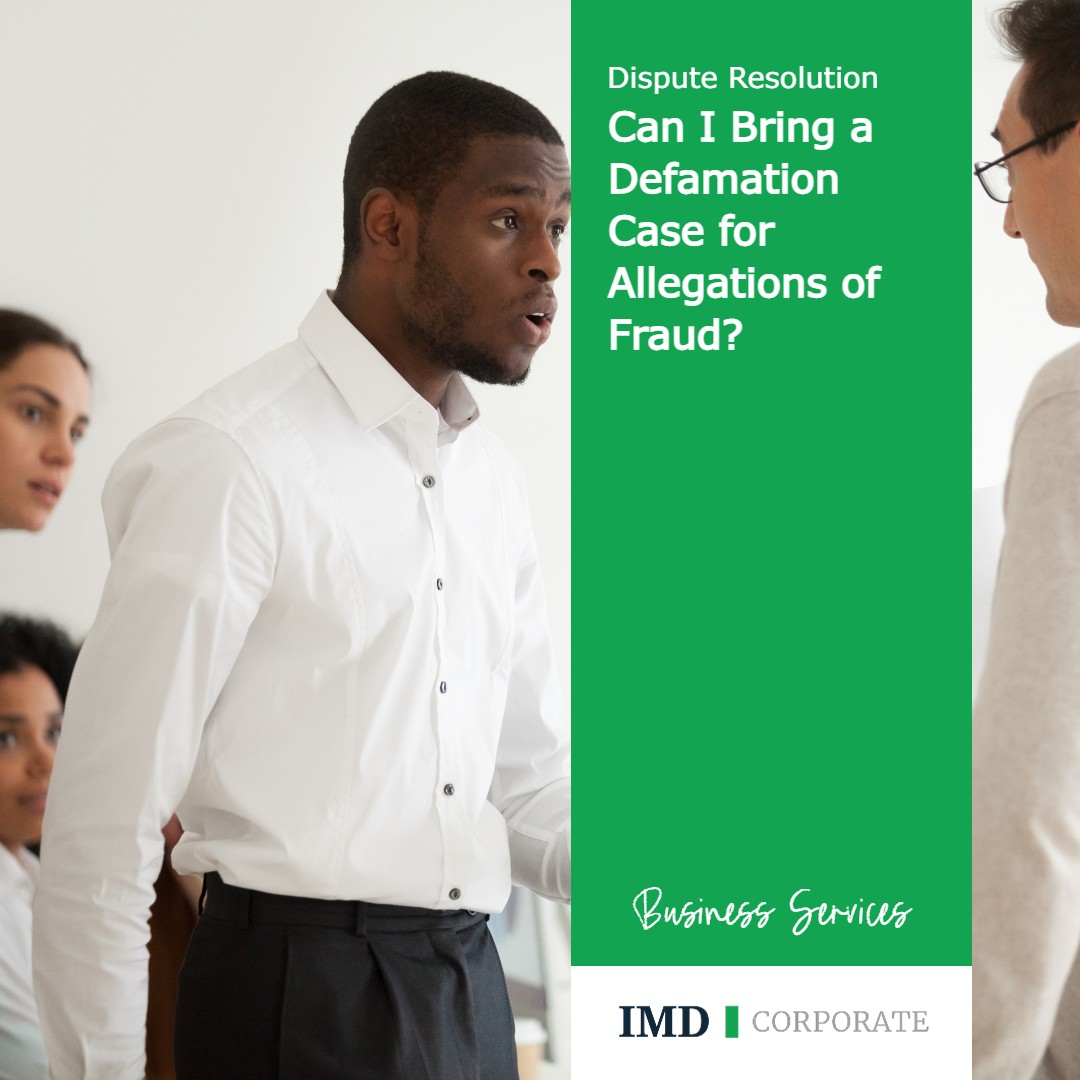
Your reputation can be one of the most valuable things that you own and is often vital to the success of your business. If a person or organisation has accused you of fraud, this may cause significant damage, and it is vital to take steps to protect your personal and professional reputation.
The rise of digital media and social media platforms means that accusations made against you can travel quickly and have far-reaching consequences. There are an ever-increasing number of ways your reputation can suffer damage. In this article, we look at what you can do if you have been publicly accused of fraud, either in verbal or written communications, as well as when you suffer an attack on social media.
Defamation occurs when an individual or business makes a verbal or written statement about you that is false but is nonetheless harmful to your reputation. Defamation falls into two categories:
There are different processes and requirements for bringing a claim for each type of defamation.
If a person or organisation has made false accusations about you and they have been damaging to your reputation, you should contact an experienced lawyer right away. The sooner you get legal assistance, the more opportunity your legal team has to minimise the effects of the defamatory statements. A specialist defamation solicitor can help you in several ways. We can:
This list is not exhaustive, and we will tailor our approach to your specific circumstances.
It is also possible for a solicitor to help you if accusations have not yet caused reputational damage. If you believe that you are about to suffer defamation, a lawyer may be able to secure an injunction to prevent any statements, comments or publications from being made. An injunction may mean that your reputation is never harmed in the first place and could eliminate any damage you could potentially experience.
Even when you have not been mentioned by name, it may still be possible to bring a claim. If you or your business is identifiable from the statements and you have suffered reputational damage, you will likely be able to bring a successful defamation claim.
While many assume that defamation claims have to be personal in nature, businesses can suffer devastating reputational damage as a result of malicious accusations. As a result, it is possible for a business or company to bring a defamation claim. In order for the claim to be successful, the business must be able to prove that the accusations are false and that defamatory material or words is likely to cause significant harm to their business. In relation to businesses, significant harm usually means financial loss.
Malicious rumours on social media can spread quickly. So while social media is typically a less permanent form of publication, it can cause devastating reputational damage. The damage may already be done even where comments, posts, or other material have been deleted or removed. Defamatory words and statements published on Twitter, Facebook, Instagram or even TikTok can be just as detrimental to reputation as traditional forms of media, and so it is possible to bring a defamation claim where you have suffered such harm.
Our expert dispute resolution solicitors have handled a large number of defamation and malicious falsehood claims. We are well versed in the steps that we need to take to prevent the spread of allegations and rumours. Our lawyers can ensure that a public apology is made where appropriate and that those responsible are held liable for their actions. To discuss your case with a member of our team, call us today on 0330 107 0106 – there is no time to delay.
This article is for general information only and does not constitute legal or professional advice. Please note that the law may have changed since this article was published.